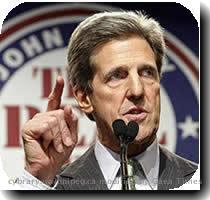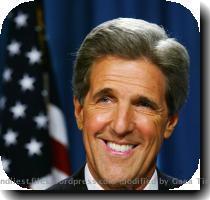Israeli police storm Jerusalem holy site to stop Palestinians throwing objects at tourists
By Aron Heller, APSunday, February 28, 2010
Israel police storm holy site to quell protest
JERUSALEM — Israeli police forces stormed the most contentious holy site in Jerusalem on Sunday to disperse masked Palestinian protesters hurling objects at a crowd of visitors, authorities said.
The incident was over quickly, but the area remained tense afterward. In the past, violence at the site — known to Jews as the Temple Mount and to Muslims as the Noble Sanctuary — has erupted into deadly battles, and Palestinian officials warned Sunday’s unrest threatened to undermine new attempts to restart peace talks.
Police spokesman Micky Rosenfeld said police dispersed some 20 masked protesters who had holed up overnight in the Al-Aqsa mosque inside the hilltop compound. The protesters pelted tourists with objects early Sunday, and threw rocks at the police when they responded to the incident, he said.
Calm was quickly restored, he said, and about 1,000 tourists managed to visit the area after order was restored.
Palestinian officials said the youths thought Jewish extremists — not tourists — were entering the compound and would try to take it over. Small groups of masked Palestinians continued to clash with police elsewhere in Jerusalem’s Old City and in a nearby neighborhood just outside the walled area.
Rosenfeld said police dispersed the protesters without having to use force, but four officers were lightly wounded and seven Palestinian rioters were arrested. By midday, the clashes had ended, but about 15 Palestinians remained holed up inside the complex.
Tensions have been high in recent days following the Israeli government’s announcement that two West Bank shrines would be added to Israel’s list of national heritage sites. Palestinians denounced the move as a provocation, and Palestinian President Mahmoud Abbas has warned the incident could spark a “religious war.”
Rosenfeld said the decision on the West Bank shrines was clearly in the “background.”
But the Palestinian religious body that administers the mosque, the Waqf, said young men rushed to the compound after hearing a rumor that hardline religious Jews intended to storm the area.
“The police were provoking people. Maybe the youths threw shoes, but they were not hurling rocks,” said Abdul Azim Samhadana, the head of the council. He said he was not aware of Palestinian youths harming tourists.
Conflicting claims to the hilltop site of Sunday’s violence lie at the heart of the Israel-Palestinian conflict.
Jews revere it as the site of the two biblical Temples, while Muslims regard the Al-Aqsa compound, home to the gold-capped Dome of the Rock, as Islam’s third-holiest site, where the Prophet Muhammad ascended to heaven.
The compound has been a frequent flashpoint for conflicts before. A visit to the site in 2000 by Ariel Sharon, then an Israeli opposition leader and later prime minister, helped ignite deadly clashes that escalated into violence that engulfed Israel and the Palestinian territories for several years.
Israel has controlled the compound since capturing east Jerusalem in the 1967 Mideast war and insists it will retain it forever, though it has left day-to-day administration to a Muslim clerical body.
Palestinians see east Jerusalem, including the Old City where the sacred complex lies, as the capital of a future state.
Sunday’s unrest came at a delicate time, as the U.S. tries to restart peace talks after a yearlong break. Israeli and Palestinian officials have said indirect negotiations through American mediators could start in the coming weeks.
Sen. John Kerry is in the region this week to discuss U.S. peace efforts, and Palestinian President Mahmoud Abbas will appeal to Arab foreign ministers later this week for support.
“With these provocations, Israel is aiming to undermine the basis for resuming negotiations,” said Nabil Abu Rdeneh, an aide to Palestinian President Mahmoud Abbas.
While Abbas’ government favors peace talks, the rival Hamas militant group, which controls the Gaza Strip, opposes any dialogue with Israel.
In Gaza, Hamas’ minister of religious affairs, Taleb Abu Shaar, called on Palestinians to rise up violently against Israel and “protect our Islamic holy places from the risk of Judaization.”
He called on the United Nations to impose sanctions on Israel “because of its crimes.”
____
Associated Press Writers Diaa Hadid and Dalia Nammari contributed to this report.
Tags: Gaza Strip, Geography, International Agreements, Israel, Jerusalem, John Kerry, Middle East, Palestinian Territories, Protests And Demonstrations, Religious Doctrines And Belief Systems, Storms, Territorial Disputes, West Bank

